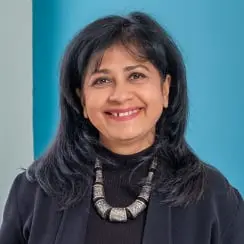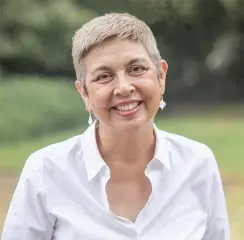 | 1.5 LU |
 | 1.5 LU |
Room: E143-144
Audience: Educators
Call to Action:
Abstract: In a world cluttered by irrelevant information, clarity is power. In theory anybody can join this debate about the future of education, schools, and our humanity, but it is hard to maintain a clear vision unless we understand what it truly means to being human. Human evolution has defined us to the very core of how we perceive and experience our environment around us. As described by Smithsonian National Museum of Natural History, natural selection was not always a matter of survival of the fittest but also survival of those most adaptable to changing surroundings. Walking upright, the capacity to make tools, our multisensory brain, and dependence on technology to alter the surroundings have all impacted our responses to our built environments. Our evolution can provide insight to understanding human behavior around collaboration, safety and security and behavioral responses to survival all providing cues to designing sustainable learning environments that create a sense of place and belonging for all humans big and small. This session will attempt to unfold a deeper understanding of what it means to be human and attempt to offer clarity in this debate about the future of schools. Understanding the major forces that are at play today, redefining our future will also be discussed. Let’s come together and imagine a place where humans big and small can bring crazy love, joy, energy, and warmth as a power of true connections and purpose.
Learning Objectives:

Nandita is a thought leader with a background in both architecture and interior design and has been working with districts to envision transformative solutions for the past 25 years. Her diversity and background in teaching has been her superpower. In every one of her projects, she has consistently prioritized creating a seamless alignment between the curricular goals, vision, and mission, of the districts with their learning environments. She consistently engages all stakeholders at every stage of the project from educational visioning, pre-design planning, master planning, through strategizing solutions that helps elevate stakeholder voices and builds ownership around solutions that are holistic transformative and impactful. Nandita is a certified educational planner (ALEP) through the Association for Learning (A4LE) and environments. She is the past president of the A4LE Michigan Chapter and the current President of the Midwest Great Lakes region.

Kelsey is an Educational Planner and Architect who is experienced as an educational design professional with an emphasis on education and wellness. Her visions for the future of architecture involve strongly embedded ideologies on designing for equity in the built environment. Her nationally awarded research explores how health and wellness can be implemented to cause positive change within communities that face multifaceted issues like obesity, food deserts, poverty, educational obtainment, and systemic racism. She is a recipient of the EdMarket NexGen Award, she utilizes her passion to design stimulating, future-focused learning environments for Legat Architects.

Julia has been working for school districts for the past 20 years to positively impact the learning experiences of the students she serves. She manages the planning of major projects transforming existing school sites and leads the effort to develop, update and align LAUSD’s design standards and educational specifications with its instructional vision. In her professional and personal efforts, Julia advocates for inspiring learning environments that provide all children the opportunity to learn, to grow and to dream.
Educational Visioning
Exhibits an understanding of best and next practices related to educational leadership, programming, teaching, learning, planning and facility design. Establishes credibility with educators, community members and design professionals while conceiving and leading a community-based visioning process. Demonstrates the ability to articulate the impact of learning environments on teaching and learning and uses that ability to facilitate a dialogue that uncovers the unique needs and long-range goals of an educational institution and its stakeholders – translating that into an actionable written/graphic program of requirements for the design practitioner.